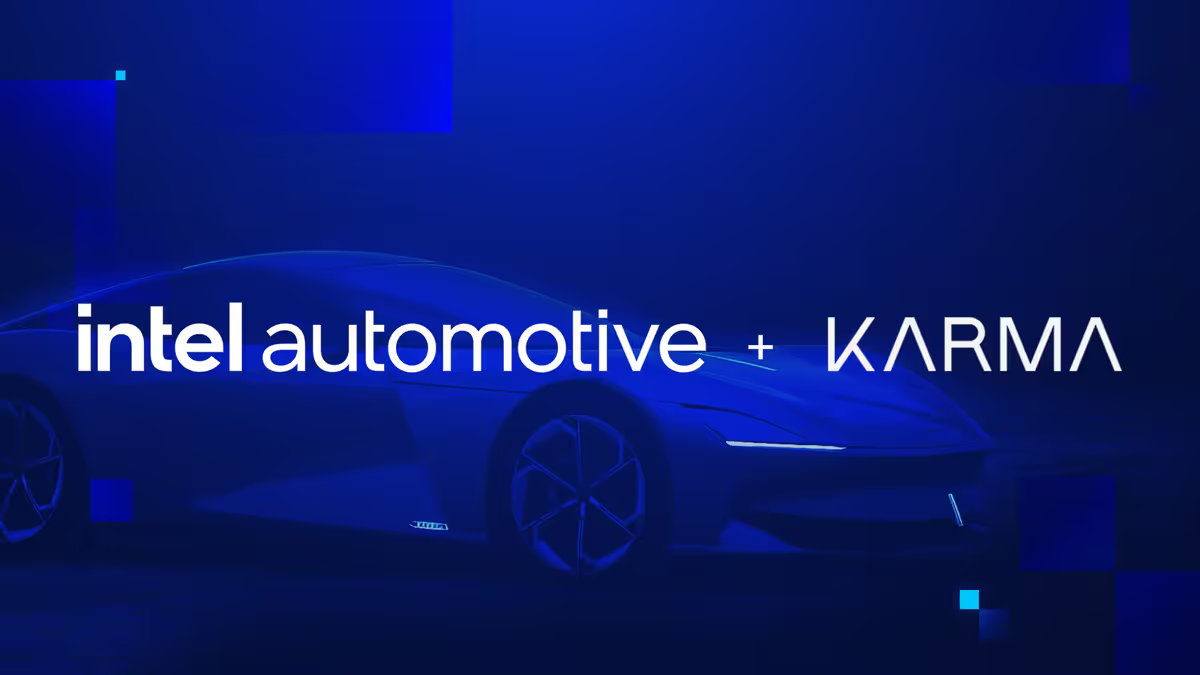Karma Automotive’s Revolutionary Partnership with Intel: A Blueprint for the Future of Electric Vehicles
Discover how Karma Automotive and Intel are redefining the future of electric vehicles with a groundbreaking software-defined vehicle architecture. Explore the impact of this innovative partnership on the automotive industry.

In a landmark announcement that is set to redefine the future of automotive development, Karma Automotive, California’s premier ultra-luxury automaker, has unveiled a comprehensive partnership with Intel, one of the world’s leading technology companies. This collaboration will see Intel's cutting-edge automotive solutions integrated across Karma's entire vehicle platform, signaling a significant shift in how vehicles are designed, built, and experienced.
A Bold Vision for the Future of Automotive Innovation
Karma Automotive, known for its extended-range electric vehicles (E-REV) and a new line of fully-electric vehicles (EVs), is embracing a forward-thinking approach to vehicle development. By aligning with Intel, Karma is not just adopting new technology; it is setting a new standard for the industry. This partnership is centered around Intel’s "whole vehicle" approach, which leverages the power of centralized compute, intelligent energy management, and workload distribution.
Jack Weast, Intel Fellow and Vice President, and General Manager of Intel Automotive, emphasized the importance of this collaboration, stating, “Karma sees Intel’s comprehensive vehicle strategy as more than a path to improvement; it represents a paradigm shift. Karma’s commitment to crafting unforgettable experiences – where innovation meets artistry and performance blends with luxury – demonstrates how starting from a clean slate, combined with a visionary approach and the right technology partner, can redefine a software-defined vehicle."
Why This Partnership Matters
The automotive industry is currently undergoing a transformative period, moving from traditional vehicle architecture to an all-electric and software-defined future. This transition is crucial for the industry’s sustainability but is fraught with challenges such as profitability, energy efficiency, and scalability. Karma Automotive, unburdened by the constraints of legacy systems, is in a unique position to leverage this moment and drive innovation in partnership with Intel.
By collaborating with Intel, Karma is not only embracing the shift toward a software-defined vehicle architecture (SDVA) but is also positioning itself as a leader in this new era of automotive technology. The partnership aims to realize the full potential of SDVA across Karma’s portfolio, starting with the launch of the Karma Kaveya super coupe in 2026. Furthermore, Karma plans to release open standards for SDVA, contributing to the broader industry and offering a business-to-business SDVA solution to original equipment manufacturers (OEMs) and Tier 1 suppliers.
Marques McCammon, President of Karma Automotive, highlighted the broader implications of this partnership, stating, "Together, we're harnessing the combined might of Intel's technological prowess and Karma's ultra-luxury vehicle expertise to co-develop a revolutionary software-defined vehicle architecture. This isn't just about realizing Karma's full potential; it's about creating a blueprint for the entire industry. We're not just building exceptional vehicles; we're paving the way for a new era of automotive innovation and offering a roadmap for those ready to make the leap."
The Technological Foundations of the Partnership
Karma’s collaboration with Intel goes beyond the mere integration of components. It represents a deep, system-level partnership that leverages Intel’s technology in three critical areas:
- Intelligent Workload Management: At the heart of the vehicle, Intel's AI-enabled system-on-chip (SoC) serves as the brain, dynamically managing resources and optimizing performance to meet the needs of both the vehicle and its driver.
- Intelligent Energy Management: Intel’s Power Management SoC is designed to maximize the efficiency of key components such as inverters, chargers, and converters. This intelligent management ensures that battery life and overall vehicle performance are optimized, providing a superior driving experience.
- Workload Consolidation: Intel’s software-defined Zonal Controllers play a crucial role in streamlining the vehicle’s electrical architecture. By consolidating workloads, these controllers simplify the vehicle’s complexity and enhance overall efficiency, resulting in a more reliable and responsive system.
A Holistic Approach to Automotive Development
One of the key advantages of Karma's partnership with Intel is the holistic approach to vehicle development. Unlike traditional automotive strategies that focus on isolated solutions, this collaboration aims to integrate all aspects of vehicle performance and management. This approach offers several significant benefits:
- Adaptive Learning: The vehicles will be capable of learning individual driving styles, which allows for the optimization of power delivery for maximum efficiency. This means that each vehicle will be able to adapt to its driver’s habits, providing a more personalized and efficient driving experience.
- Real-Time Environmental Response: Karma vehicles will be equipped with the ability to respond intelligently to the driving environment. For example, they will adjust range estimates and issue warnings based on real-time data such as temperature and terrain, enhancing safety and efficiency.
- Proactive System Adjustments: The integration of Intel’s technology enables the vehicle’s systems to make proactive adjustments based on learned models and real-time needs. This level of responsiveness will significantly enhance the vehicle's functionality and user experience.
Setting a New Standard for the Industry
The partnership between Karma Automotive and Intel is more than just a collaboration; it is a blueprint for the future of automotive design and technology. Intel’s scalable portfolio ensures that this innovative approach is applicable to any class of vehicle, making it a versatile solution for the broader industry.
This collaboration represents a new industry step change, setting a standard for how vehicles should be designed, built, and experienced in the future. As the automotive industry continues to evolve, the Karma-Intel partnership will likely serve as a model for other companies looking to navigate the complexities of modern vehicle development.
In conclusion, Karma Automotive’s decision to integrate Intel's automotive solutions across its entire vehicle platform marks a significant moment in the evolution of the automotive industry. By embracing a software-defined vehicle architecture and leveraging Intel's cutting-edge Emerging technology, Karma is not only enhancing its product offerings but is also contributing to the broader advancement of the industry. This partnership exemplifies the potential of combining visionary leadership with technological innovation to drive the future of automotive design.
For more details on this groundbreaking partnership, you can read the full announcement on Intel's official website here.




